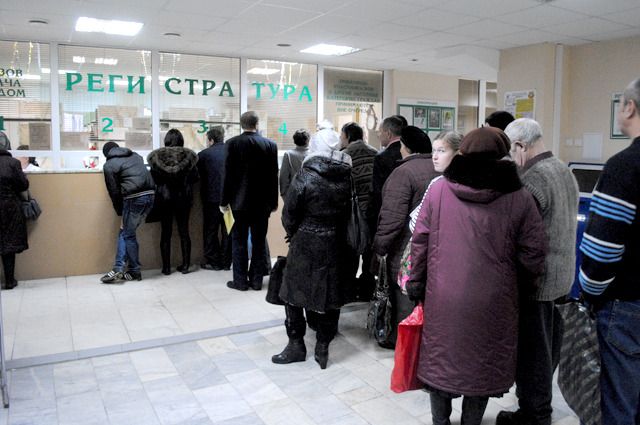Medical lawyer commented on the current law on telemedicine

Gently spreading, and hard to sleep - this can be said about the law on telemedicine, which entered into force in Russia on January 1, 2018. At first glance, everything is pretty well described in it, but upon careful reading, the question arises how this or that item will work in practice. To clarify the situation, we talked to the head of the legal support department of Med-YurKonsalt LLC, medical lawyer Yana Alekseeva.
From the Federal Law No. 242-: "Telemedicine technologies - information and communication technologies used in the provision of medical care, providing remote interaction of information exchange participants in the process of providing medical assistance, including their identification and exchange of medical documentation in electronic form."
Elimination of visits to the doctor
Waiting: I sneezed — I typed a therapist on Skype — the therapist gathered a consultation — a consultation made a diagnosis and prescribed a treatment — you received an official sick leave for two weeks and you are being treated. In reality, according to the new law, you need to come to the doctor at least once. Without a primary examination, the doctor has no right to make a diagnosis, as a result - to prescribe treatment. Where is telemedicine?
')
Lawyer's comment: According to statistics, the ratio of primary visits to secondary visits is approximately 3: 7, that is, 2/3 of visits are considered repeated, moreover, for the same disease. Telemedicine consultation focused on them. In case of telemedicine contact, after the primary appointment, the doctor can correct the prescribed treatment and issue an electronic prescription, order an additional examination, issue a certificate in electronic form. If the patient wants to receive a consultation remotely, he can receive it, after which he will be given a medical certificate, but without prior diagnosis and treatment. The conclusion itself can be spelled out recommendations: both a personal visit to the doctor, and the conduct of preliminary examinations for a personal visit to the doctor.
In addition, without a primary examination can not do, because in some cases the doctor must see the patient. For example, in the range of services for primary examination, neurologists have such a service as palpation, which is impossible to carry out remotely, that is, at present, rendering consultation to a neurologist without palpation can be evaluated as a poor-quality service.
Competence and Competency Telemedicine
The law does not provide for a license to provide telemedicine services per se. Does this mean that anyone who considers himself a doctor has the right to provide medical advice remotely? Not. Legally, such activities can only be conducted by specialized medical organizations with a license to provide traditional medical care and only for those types of medicine that are registered in this license.
Lawyer’s Commentary: Since January 1, it entered into force by the Order of the Ministry of Health of the Russian Federation of 30.11.2017 No. 965n “On approving the procedure for organizing and providing medical care using telemedicine technologies”, which establishes the rules for telecommunications interaction between health workers, doctors and patients their representatives.
Telemedicine itself is not licensed as a separate service. It is a "service" and is not made a separate item. This service can be provided in any direction in the specialty. But if the clinic has a license only for the provision of services in ophthalmology or neurology, then this list can not go.
Medical care is provided only through the Unified State Information System and only for those services for which a particular clinic has a valid license, and only if it is identified in this system. Also, to participate in telemedicine, patients and doctors must be identified through another IP, which is called almost the same - the Unified Identification and Authentication System. In addition, medical professionals must be entered in a special federal registry. This is approved in Article 91.1 of Federal Law No. 323.
But what is the legal status of private telemedicine services like Yandex.Health? Are they registered in such a system?
Lawyer's comment: It is indicated on the Yandex.Zdorovye portal itself that partners provide advice and information services. When conducting a detailed analysis, it turns out that OOO Klinika Yandex. Health does not have a license to carry out medical activities and cannot provide telemedicine services. What is directly reported in the conditions of using the service Yandeks.Zdorje. At the same time, in the contracts of the offer of such partner services as: doc +, the doctor is nearby, it is a question of transferring medical confidentiality to the Yandex.Health service, which contradicts clause 2. Art. 13 of Federal Law No. 323.

The possibility of obtaining electronic sick leave
In theory, the patient can receive a sick-list in electronic format, provide it at the place of work, and the document will be quoted along with the usual paper one. The document is stored in the personal account of the patient and is digitally signed by the attending physician and the medical institution. But in practice ...
Lawyer's comment: The issuance of electronic sick leave is provided for by Federal Law of December 29, 2006 No. 255- “On Compulsory Social Insurance in the Case of Temporary Disability and in Connection with Maternity”. But this requires that the medical organization and the employer of the insured person, that is, the patient himself, are members of the information interaction system. For this purpose, there is a personal account on the social insurance fund website. There must be registered a medical organization (the doctor registers and receives an electronic key for the signature) and the employer. And the patient must submit a written consent to the formation of a certificate of incapacity for work. At the same time, the law does not force participants to register - this happens at the request of three parties. So far, we are witnessing a transition period.
About liability for telemedicine errors ...
... not a word yet. Who will be responsible for the mHealth-service glitch or incorrect remote diagnosis?
Lawyer's comment: In accordance with the already mentioned Order No. 965n of the Ministry of Health of the Russian Federation, there are three types of medical care:
- emergency assistance with a threat to life - must be provided within 30-60 minutes;
- emergency without threat to life - from 3 to 24 hours;
- scheduled - 1-4 days.
It is not possible to interpret this moment, since responsibility is not clearly defined. No separate responsibility has been described for the provision of telemedicine consultation as opposed to the classical consultation. This still remains an open question, in which further certain amendments will be made by the legislation, but this will happen after claims, lawsuits, payments from medical organizations. As patients and investigating authorities in Russia like to sue medical organizations and doctors.
Amendments and clarifications
The integration of information technology into medicine in Russia occurs gradually. Moreover, in addition to a number of technical issues, do not get away from legal issues. Additional information about new technologies in medicine and the legality of methods in particular will be available on April 3 at the M-Health Congress , where Yana Alekseeva will speak as a speaker on the topic “Legal Security and Peculiarities of Using Information Technologies and Digital Medical Assistants” .
Lawyer's comment: I chose this topic for a reason - the introduction of telemedicine raises many additional questions about the rights of the doctor and patient. For example, in addition to assessing the completeness of data provided by patients, it is necessary to properly construct the protection of information transmitted over the Internet and medical confidentiality. There is a very interesting question here: according to article 13 on medical secrecy of federal law No. 323, a doctor can keep a secret and not transfer information to an outsider. In my opinion, the patient should have such a duty. But in the contract with the patient, we can not make a point about medical confidentiality, because it will be a violation of the rights of the patient. In addition, there is a feature of the design of contractual relations, consent to the processing of personal data with both the patients themselves and their representatives. That's what I want to tell you.
Source: https://habr.com/ru/post/410997/
All Articles